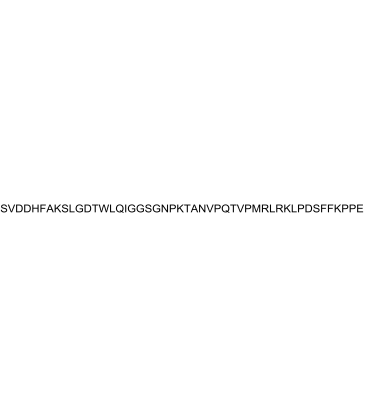| Description |
Super-TDU is a specific YAP antagonist targeting YAP-TEADs interaction. Super-TDU suppresses tumor growth in gastric cancer mouse model[1].
|
| Related Catalog |
|
| In Vitro |
Super-TDU downregulates expression of YAP-TEADs target genes CTGF, CYR61, and CDX2. Super-TDU inhibits cell viability and colony formation of GC cell lines MGC-803, BGC-823, and HGC27[1].
|
| In Vivo |
Super-TDU (intravenous injection; 50 μg/kg or 500 μg/kg; per day) markedly decreases the sizes, weights of tumors, and YAP target genes in a dose-dependent manner in mice[1]. Super-TDU (intravenous injection; 250 μg/kg 500 μg/kg) has the t1/2α of 0.78 hours and 0.82 hours; the Cmax of 6.12 ng/mL and 13.3 ng/mL; the CL of 7.41 ml/min/kg and 7.72 ml/min/kg for 250 μg/kg and 500 μg/kg in mice, respectively[1]. Animal Model: BALB/cA nu/nu mice[1] Dosage: 50 μg/kg or 500 μg/kg Administration: Intravenous Injection; per day Result: Decreased the sizes, weights of tumors, and YAP target genes in a dose-dependent manner. Animal Model: BALB/cA nu/nu mice[1] Dosage: 250 μg/kg or 500 μg/kg (Pharmacokinetic Study) Administration: Intravenous Injection Result: The t1/2α is 0.78 hours and 0.82 hours; the Cmax is 6.12 ng/mL and 13.3 ng/mL; the CL is7.41 ml/min/kg and 7.72 ml/min/kg for 250 μg/kg and 500 μg/kg in mice, respectively.
|
| References |
[1]. Jiao S, et al. A peptide mimicking VGLL4 function acts as a YAP antagonist therapy against gastric cancer. Cancer Cell. 2014 Feb 10;25(2):166-80.
|


